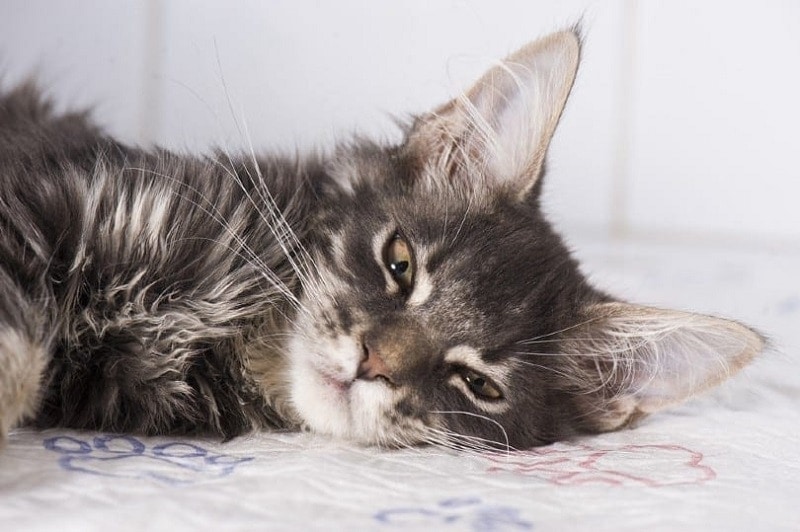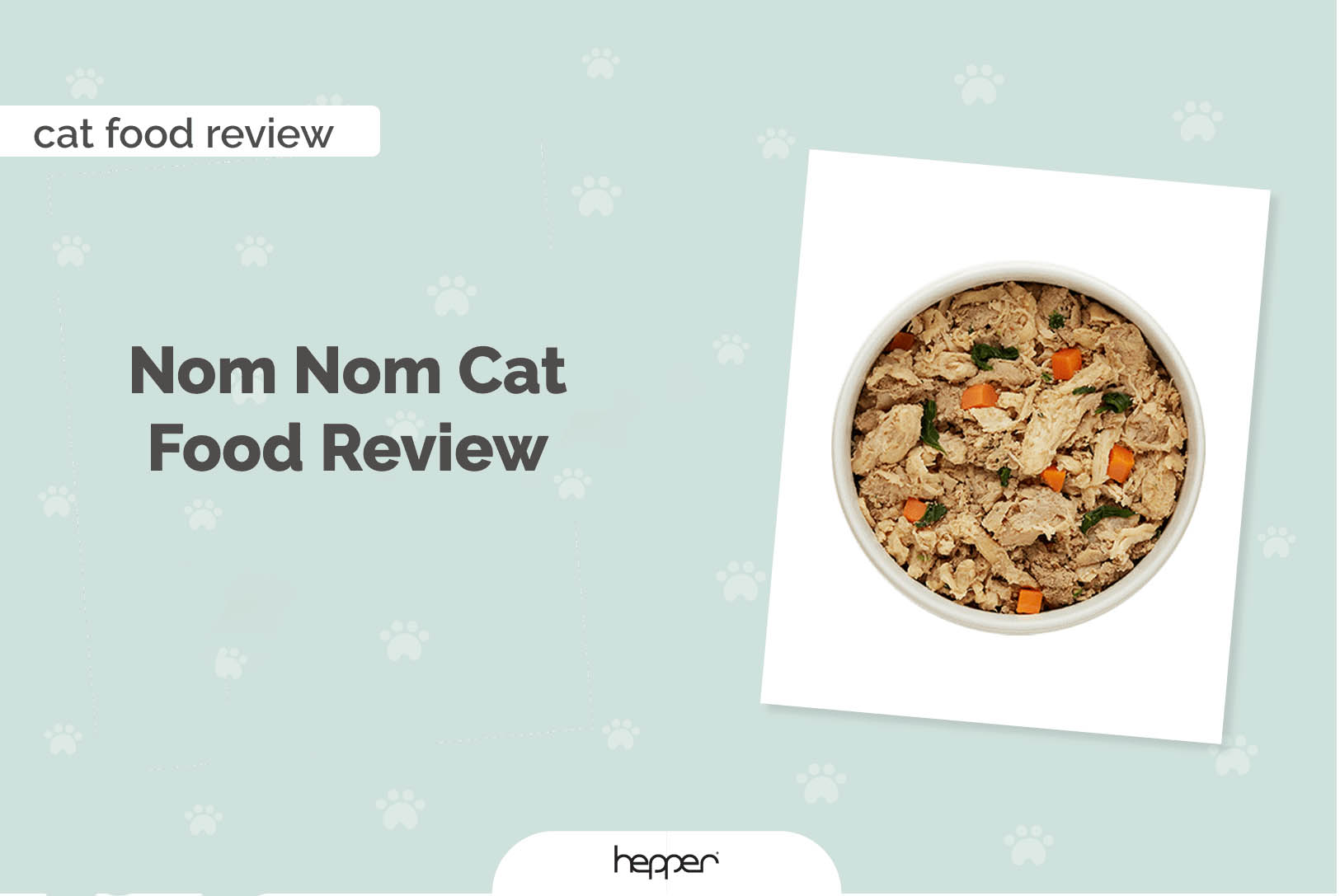Can Cats Eat Persimmons? Vet-Reviewed Nutrition Facts & FAQ
By Luxifa Le
Updated on
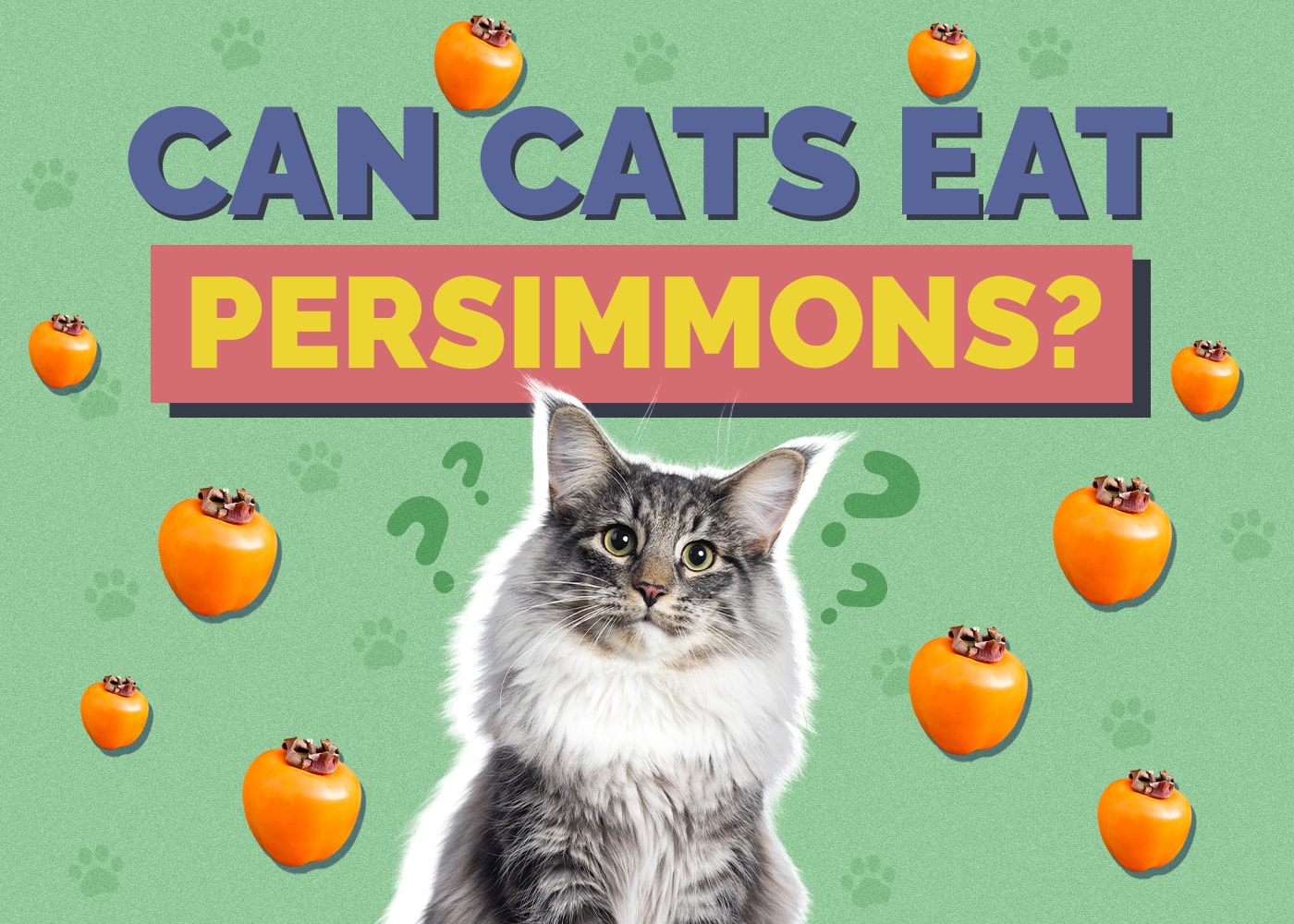
Feeding your pets is the very basics of pet care. Cats’ nutritional needs have become a hot debate amongst animal enthusiasts. If your cat is attracted to your persimmons, have no fear! These fruits are non-toxic for cats. So, if you find them showing interest in persimmons, there’s no risk to them if they’re consumed in moderation and served very occasionally, but keep in mind that persimmons and other fruit should not be a regular part of their diet.
Speak to your vet about the adequate nutrition and choice of treats for your cat, as it may differ based on their age, underlying health, lifestyle, and activity levels. Cats suffering with digestive issues, diabetes, or other conditions will require a particular vet-approved dietary plan, and, in many cases, fruits should be avoided as a source of carbs.
Cat Nutrition for Beginners
Cats are obligate carnivores, meaning they consume a diet of at least 70% animal proteins in the wild. Obligate carnivores lack the intestinal bacteria and digestive enzymes to break down plant matter. While plant matter isn’t toxic to them and can even be healthy in small amounts, obligate carnivores don’t derive the same nutrients that omnivorous animals, such as humans or dogs, do.
Persimmons are not toxic for cats and can even provide some beneficial nutrients when fed in small amounts, but this is unlikely to be significant. However, that doesn’t mean that you should let your cat snack on persimmons instead of eating their regular food.
Cats don’t have sweetness receptors on their tongue; they can’t taste sugar the way humans do. They usually don’t show much interest in sweet foods because the tantalizing sweetness is lost on them. However, that doesn’t mean they can’t eat them if offered.
Still, fruits are mostly high in carbs, and cats do not have a specific dietary need for carbohydrates. Cats will be able to digest certain types of carbs better than others, and most healthy cats will tolerate them quite well. However cats cannot metabolize fructose from fruit, and those suffering from diabetes generally benefit from a low-carb diet.1
This means healthy cats can be offered a small amount of fruit as an occasional small treat, but it should not be a regular part of their diet. Cats thrive on a high-protein diet, and excess of sugar may lead to digestive problems or obesity, depending on the amount of regular carbs and activity levels.
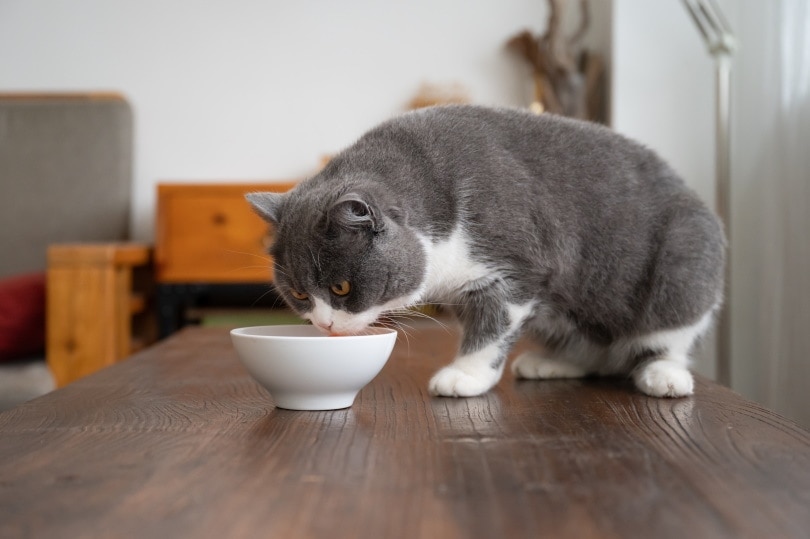
Safely Feeding Cats Persimmons
A notable danger can come with feeding persimmons and any fruit, mostly from the seeds and pits.
When feeding your cat persimmons, you’ll want to make sure that you only provide them the meat of the berry in bite-sized portions and remove any seeds that they might ingest. Persimmon berries contain five to eight seeds on average.
Additionally, cats can choke on fruit seeds and pits, making them dangerous even in small quantities. It’s also possible that the seeds or part of the pit may either cause a digestive issue in your cat, or in some cases may also lead to a gastrointestinal blockage that would require veterinary attention and surgery.
Other parts of the fruit, such as the leaves and skin, should be avoided, as they are not digestible. Also, ensure the fruit is ripe and free of mold, as there are reports of serious health concerns in people eating unripe fruit due to tannins and formation of bezoars. Due to lack of specific scientific evidence on this topic, we cannot be sure if this can occur in our feline companions. It’s important to be on the safe side and consult with your vet. Tannins may cause digestive issues and irritation and are considered toxic to cats.
What Other Fruits Can Cats Eat?
Cats can eat a variety of fruits safely. You’ll want to remove any unsafe seeds or pits that your cat might make a snack of. With proper safety precautions, fruits can be an occasional snack for your cats! However, as discussed before, fruits should not make a regular part of a cat’s diet, as the sugar content is harmful and may lead to various short-term and long-term health issues.
Please consult with your vet before offering your cat any fruit, as they should not be a regular part of their diet. Cats suffering from diabetes, or cats on a prescription diet with digestive or other specific health issues, should not have a high amount of carbs in their diet. We will go through some of the fruits that are considered safe and non-toxic for cats, but that does not mean they should eat it, and certainly not on a regular basis.
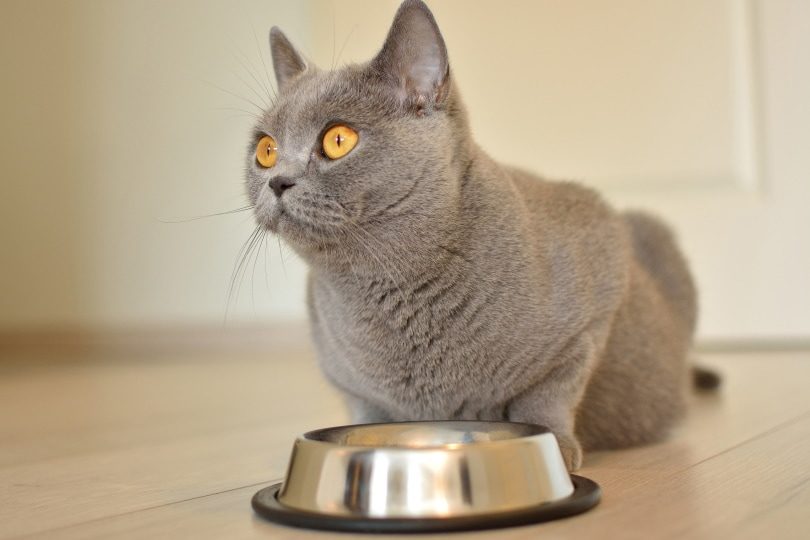
Bananas
Bananas, although being a valuable source of nutrients for people by offering potassium and vitamins B6 and C, should be offered to cats in strict moderation. However, cats’ dietary needs are very different from ours, and their diet is based on protein. They are also able to synthesize vitamin C and generally do not require supplementation. Cats can have very small pieces of fresh banana but only occasionally. When serving your cats bananas, you should ensure that they are sliced or possibly mashed up to make them more palatable to your cat.
Watermelon
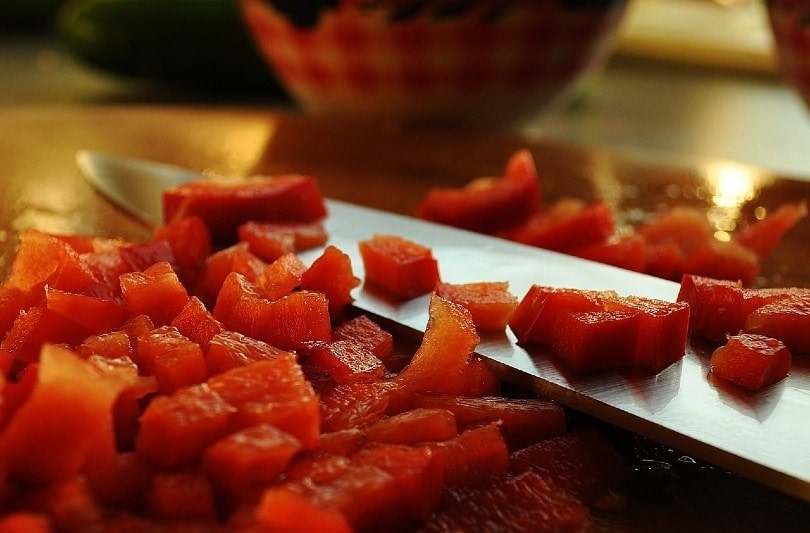
Cats can eat small portions of watermelon flesh on occasion. Do not give your cat watermelon rinds or seeds since these can give them diarrhea, cause choking or a gastrointestinal blockage.
Strawberries
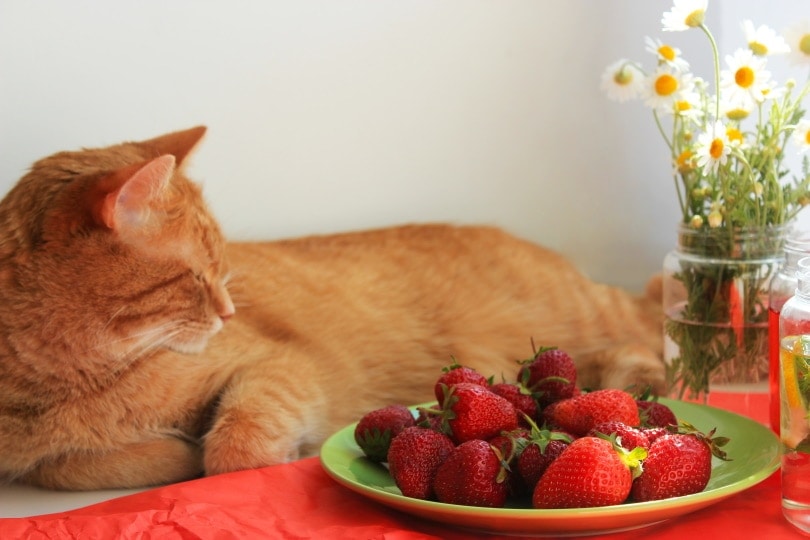
Strawberries are safe in small quantities for cats. While they’re a good source of folate, manganese, and vitamin C for people, the same benefits cannot be extrapolated to cats. Our feline companions have very different dietary needs and metabolic requirements, as previously discussed, and the benefits they would reap from an occasional strawberry are fairly insignificant and limited. However, if you remove the stems and leaves, these berries are perfectly safe for cats to eat as an occasional treat.
Apples
Apple is an excellent source of fiber and micronutrients for people. Apples without the skin and seeds are edible for cats if offered in strict moderation on special occasions and can provide very few limited health benefits. However, the stems and seeds should be removed before serving, and the high carb content makes it a fruit that should be given very rarely, if at all.
Mangoes
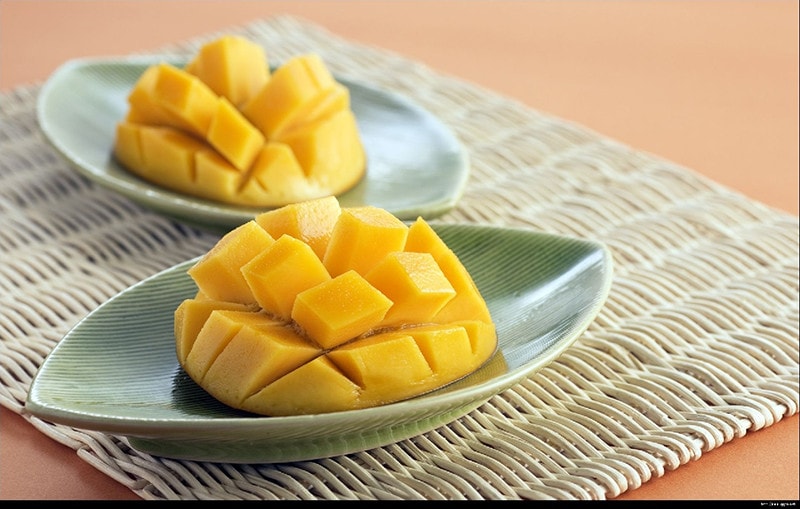
Mangoes are a fantastic source of fiber and vitamins. They’re also one of the fruits that most cats can pretty freely indulge in, but only on very rare occasions due to the high carb content. Avoid feeding your cat any skin or seeds, but mango flesh can be given to them as a small treat.
Blueberries, Blackberries, Cranberries, and Raspberries
These berries are edible for cats and can provide limited health benefits to cats who will eat them. They’re high in antioxidants and vitamins. Be sure to cut them into bite-sized chunks before giving them to your cat, and offer it only as an occasional treat in moderation.
Cantaloupe
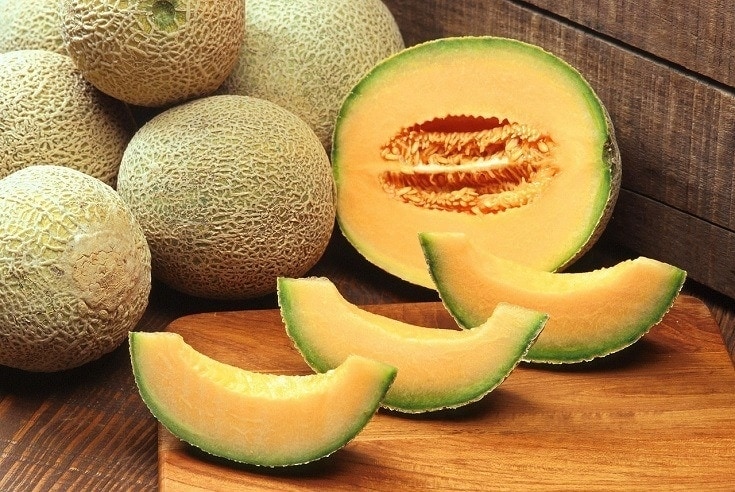
Cantaloupe is an excellent source of antioxidants and is very low in caloric density, making it a perfect occasional treat for cats. Cantaloupe has a scent that mimics the smell of meat proteins. So, a lot of cats will happily indulge in this fruit. Small cubes of cantaloupe flesh are fine to give your cats. However, you’ll want to avoid the rind.
Pineapple
Cats can eat pineapple, but it’s more complicated to feed than a lot of other fruits, and it’s particularly high in sugar. You’ll want to feed your cat fresh pineapple if you provide them any at all; canned pineapple is often preserved in a sugary syrup that isn’t fit for cat consumption and may be harmful. You’ll also want to remove leaves, thorns, and the rind completely before serving this to your felines.
Fruits That Are Unsafe for Cats
There are also plenty of fruits that are unsafe or even toxic for cats. You’ll want to remove the seeds, pits, and stems of any fruit that you give your cat. However, even the flesh of some fruits can be dangerous when ingested.
Grapes and Raisins
Grapes and raisins should never be fed to cats. They are toxic, and even a little bit can cause vomiting, diarrhea, lethargy, and acute kidney failure. If your cat is begging to bite your grapes, don’t give in. This fruit is extremely dangerous for cats.
Citrus Fruits
Avoid citrus fruits like lemons, limes, and oranges. These fruits’ oils and chemical compounds are toxic for cats depending on the amount and can cause digestive upset, skin irritation, and neurological signs, although these reports in literature are quite rare. It’s best to be safe rather than sorry, so always avoid these types of fruits.
Now that you know what you can safely feed your cat, it’s just as important to find a bowl that supports their health and well-being. With whisker-friendly bowls and a wide tray to catch any spills, our Hepper NomNom Cat Bowl is our favorite option.
Final Thoughts
It’s hard to say no when your cat is begging for food; who could say no to such a cute face? But it’s our job to protect them from themselves! Luckily, persimmons are safe for cats to consume as an occasional treat and in moderation. So, if your cat has taken a bite of your persimmon, you don’t need to worry about them getting sick from it.
There are a lot of fruits that we can feed our cats as treats, but it’s important to understand that fruits are rich in sugars and should not make a regular part of their diet. Cats are unlikely to reap any significant benefit from eating fruit. Speak to your vet when it comes to your cat’s nutrition, particularly if they are suffering with any health issues, such as diabetes, and require an individual and special dietary plan.
You might also be interested in:
- Can Cats Eat Carnations? Are They Toxic To Cats?
- Can Cats Eat Alfalfa Sprouts? What You Need to Know!
Featured Image Credit: Lapha.R, Shutterstock




